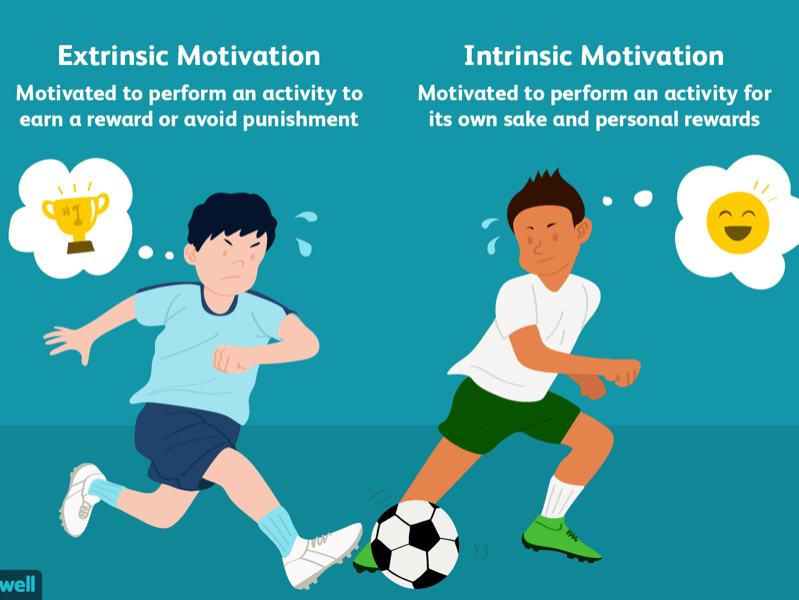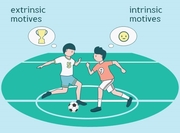Intrinsic Motivation vs Extrinsic Motivation: What Motivates Your Child?
We all want students to be driven from within; however, there are times that external motivation can really help the student. What is the difference between intrinsic and extrinsic motivation? How can this help me help my child? Take a couple of minutes and let's figure it out together.
Extrinsic motivation, however, is learning because of external factors. Students may be motivated to learn to pass a test, to gain a reward, or to avoid punishment. An example of extrinsic motivation is a student who is studying so their parents will not ground them for poor grades. Extrinsic motivation could be training and participating in a sport to win awards. It might be cleaning their room to avoid being reprimanded. It could be competing in a contest to win a scholarship. It could be studying because they want to get a good grade.
Intrinsic motivation occurs when students are engaged because of internal rewards, like a love of learning or interest in a subject. It happens when your child is motivated to perform an activity for its own sake and personal rewards. Intrinsic motivation could be participating in a sport or activity because your child finds the activity or sport enjoyable. It could be cleaning up their room because they like a tidy, clutter-free space and how it makes them feel. It could be solving a word puzzle because they find the challenge fun and exciting. It could be reading books or studying a subject because your child finds the subject fascinating.
See the differences? Good. Now, when to use them...
You might want to use an external reward to motivate your child to learn something new. An external reward could be good to help make your child more interested in an activity that they are not interested in. External rewards can be used to provide feedback to people to let them know their performance is worthy of recognition.
You don't want to use an external reward if your child is already interested in the topic, task, or activity. Offering a reward would make the activity feel like "work" instead of "play".
Hopefully, these insights on motivation will help you find motivation for your student to be, do, and have the best.










.png)


